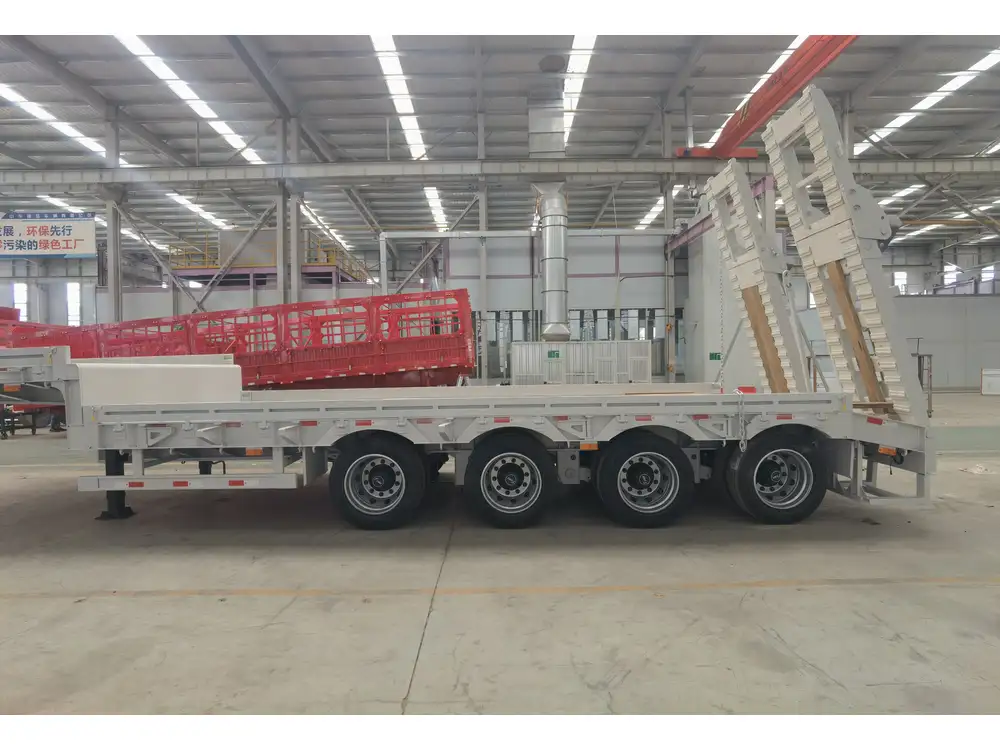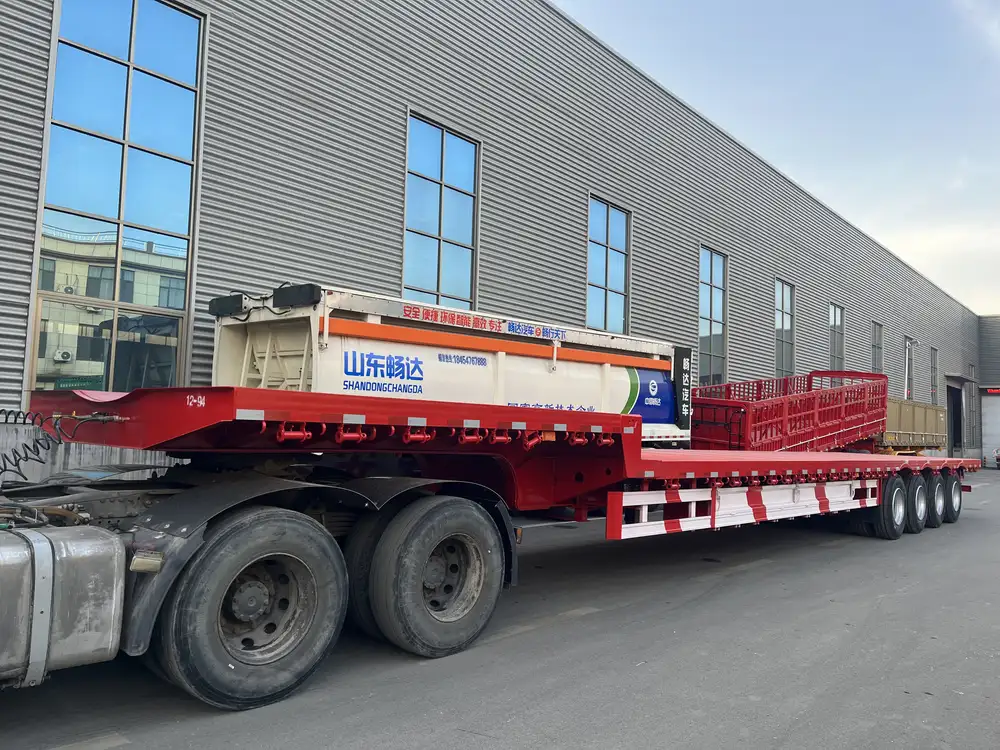When it comes to the logistics of transporting materials via semi-trailer, one of the most crucial aspects to grasp is the cost associated with dumping a trailer load. Understanding the intricacies of these fees not only aids in better budgeting but also helps in engaging in negotiations with waste management service providers. This article delves deep into the myriad factors that influence dumping fees and provides practical insights for operators and owners alike.
Understanding Dumping Fees
Dumping fees typically refer to the charges incurred when waste or materials are disposed of at a landfill or a designated disposal site. These fees can vary widely based on several factors, including the type of material, the weight of the load, geographic location, and the specific disposal site policies.
Factors Influencing Dumping Costs
Type of Material: Different materials carry different disposal costs. For example:
- Construction Debris: Generally more expensive due to the need for specialized handling.
- Green Waste: Often cheaper as many composting facilities provide discounts.
- Hazardous Waste: Substantially higher fees due to regulatory compliance requirements.
Weight: Most dumping sites charge based on the weight of the load. It’s essential to know your trailer’s capacity and the approximate weight of your materials:
- A standard dump trailer can typically handle around 14,000 to 16,000 pounds.
- Expect fees to range from $45 to $200 per ton, dependent on the material.
Location: Regional disposal costs can differ significantly. Large, urban areas may impose higher fees due to land scarcity and operational costs. In contrast, rural zones might offer more affordable options.
Disposal Site Policies: Each waste management facility has its fee structure and operational rules. Some offer discounts for bulk dumping, while others have additional fees for mixed loads or non-compliant materials.

Comparative Table of Dumping Fees
| Material Type | Estimated Cost per Ton | Comments |
|---|---|---|
| Construction Debris | $80 – $200 | Higher due to special handling requirements |
| Household Waste | $50 – $120 | Standard disposal fees |
| Green Waste | $30 – $70 | Often discounted at dedicated sites |
| Hazardous Waste | $200 – $500+ | Compliance requirements drive up costs |
| Mixed Load | $100 – $250 | Additional sorting fees may apply |
The Importance of Weight Management
Accurately weighing your load is paramount. Avoiding overweight loads not only ensures compliance but minimizes unexpected charges. Operators should invest in reliable weighing systems and regularly maintain equipment to prevent inaccuracies.
Best Practices for Weight Management
Use Certified Weigh Stations: Always weigh your trailer before heading to the disposal site. Many states host publicly accessible certified weigh stations.
Calculate Load Weight: Use formulas or apps to estimate load weight based on the material type and its average density.
Regular Maintenance: Ensure that your trailer and hauling equipment are properly maintained to avoid mechanical failures while on the road.

Negotiation Techniques with Waste Management Facilities
Engaging with waste management facilities doesn’t have to be a daunting task. Implementing effective negotiation strategies can lead to significant cost savings.
Tips for Negotiating Better Rates
Build Relationships: Consistency in your disposal practices can lead to rapport and understanding with facility operators, opening avenues for bulk discounts.
Inquire About Loyalty Programs: Some facilities offer loyalty discounts or programs for frequent users.
Compare Multiple Facilities: Never hesitate to shop around. Obtaining multiple quotes can put you in a stronger position during negotiations.
Understanding Regulatory Compliance
Adherence to local environmental regulations is critical not only from a compliance perspective but also from a cost standpoint. Non-compliance can lead to hefty fines and increased fees.

Key Regulatory Considerations
Permits: Ensure that you have the necessary permits for waste haulers in your area. Failure to possess these can lead to delays and financial penalties.
Material Categorization: Ensure that you’re categorizing your waste correctly. This directly affects disposal fees and legal compliance.
Safety Protocols: When hauling hazardous materials, be mindful of the strict regulations governing transport and disposal. Violations can incur significant costs, underlining the importance of due diligence.
Essential Questions About Dumping Costs
To demystify the topic of dumping trailer loads, let’s engage with some frequently asked questions that often arise.
What Should I Expect in Terms of Fees?
Fees can fluctuate significantly, so expect a broad range. Knowing your material type, weight, and local costs will provide a foundational understanding before visiting a disposal site.

Are There Any Hidden Fees?
Be wary of undercurrents of additional fees, such as:
- Administrative fees
- Weighing fees if not included in the base rate
- Special handling fees for mixed or hazardous materials
How Can I Minimize Costs?
- Prioritize Recycling: Engaging in recycling initiatives can reduce the amount of waste you need to dispose of, thereby minimizing fees.
- Schedule Wisely: Some locations have mid-week discounts. Scheduling your dump day can lead to savings.
How Often Should I Weigh My Trailer?
For those in regular operations, weighing with each load can keep operations streamlined and compliant. If your loads are consistent, periodic checks will suffice.

The Cost-Benefit of Investing in a Trailer Scale
Investing in a trailer scale or integrated load cells can yield long-term savings. These devices facilitate pre-trip weigh-ins and help ensure that you never incur surprise fees due to overweight loads.
Advantages of Trailer Scales
- Accuracy: Provides precise weight measurements, ensuring compliance and preventing fines.
- Efficiency: Saves time by eliminating the need to stop at weigh stations before heading to disposal sites.
- Budgeting: Helps with precise calculations for budgeting and forecasting.
Conclusion: Making Informed Decisions
Navigating the complexities of dumping costs associated with semi-trailer operations demands a strategic approach. By understanding the various factors influencing dumping fees, effectively managing weight, and adhering to regulatory standards, operators can significantly mitigate expenses while ensuring compliance.
Knowledge is power – whether you are a seasoned operator or a newcomer to the logistics landscape, leveraging insights gleaned here can lead to smarter decisions and enhanced profitability. Always remember, the costs of improperly managed waste can far outweigh the fees associated with proper disposal methods. Take charge of your operations today by implementing the best practices outlined in this guide.
By doing so, you’ll not only stay ahead of your competitors but also create a sustainable and efficient waste management process that benefits your bottom line and the environment.



